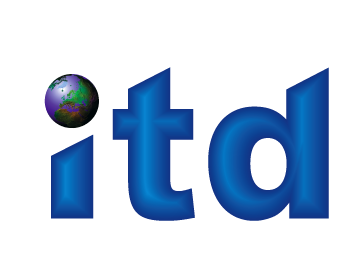
Team leadership training
Team leadership training gives new team leaders clear ideas on the key principles, and more experienced team leaders new ideas for effective performance of the role.
The Team Leader role is often the first step into managing people and it has many challenges. This workshop helps people who are new to team leader role or who want to get ideas on how to perform the role more professionally.
The importance of team leadership
Team leadership training is essential in the modern organisation. The transition from team member to team leader can be described as follows. We go from someone who is good at their job and is thought to be good at their functional role; to someone who is responsible for other people and their functional roles. We are going from someone who is rewarded for their own efforts to someone who is, to a degree, rewarded for the efforts of others. Conceptually it can be seen as an entirely different job. Yes we know the functional part of the role, but we may have no experience of managing people to do that role.
The workshop covers the fundamental building blocks of being a team leader.
The ITD approach
ITD’s approach to team leadership training is a blend of providing ideas, instruction and coaching. Participants reflect on their role and the ideas introduced, discussing these with other participants to explore how they can be introduced. They discuss and practice challenging situations for the team leader and look at any behavioural changes required.
Typical participant challenges
- “I have been a team leader for some time, but have received no formal training.”
- “I am new to the role and would like to get any ideas on how to be an excellent team leader.”
- “There are a lot of challenges I was not expecting with being a team leader and I would like ideas on these.”
- “In this role you get pressure from above and pressure from below, so I would like the team leadership training to give me new ideas and strategies for managing these.”
Typical participant challenges
- We will discuss your definition and job description for the team leader role in your organisation, then explore what you would like the team leadership training to do.
- Once we have demonstrated an understanding of your learning needs for the team leaders we will develop an agenda for the training.
- We will also develop scenarios and case studies which relate closely to the participants’ experience and future challenges.

Team leadership training overview
The following gives details of our team leadership training and to get a better idea of how this could work for you, please contact us.
Pre workshop activity
- Meeting to discuss the participant’s needs and those of the organisation for team leadership training.
- Draft workshop outline tailored to your needs.
- Agreement of agenda.
- Participants complete a short questionnaire and read the ITD Work Style Model in preparation for the workshop.
Duration
Half a day to a full day, two half days, or series of sessions if change is to be underpinned.
Team leadership training agenda
This team leadership training workshop explores the foundations of being a Team Leader. It gives the participants an opportunity to learn, discuss and practice some of the key elements of the role. It leaves the participants with individual actions to implement with their teams.
- Introduction and objectives.
- What is the team leader role?
- Challenges with the team leader role.
- Priorities of the team leader role.
- Expectations of your manager.
- Expectations of your team.
- Dealing with the possible issue of members of the team not seeing you as the team leader.
- How to run professional One to Ones.
- How to run successful team meetings.
- Situations the team leader has to deal with immediately.
- Situations which need a longer term approach.
- Working with different personalities as a team leader.
- Explaining your expectations.
- required behaviours of the team leader and how you will be observed by your team.
- Representing your team to your manager.
- Representing your team to other departments.
- Participant situations
- Practice sessions
- Personal actions
Post workshop options
- Participants leave with individual actions.
- Email follow up of personal action plans.
- Suggested conversation with their line manager on their actions.
- Optional WebEx conference call follow up on these actions.
- Optional 121 coaching.
- ITD blog with further tips and suggestions.
Post workshop options
Lorem ipsum dolor sit amet, consectetur adipiscing elit. Ut elit tellus, luctus nec ullamcorper mattis, pulvinar dapibus leo.
Why do organistaions choose ITD
We will tailor the training to suit your organisation’s needs and those of your participants.
We have been working with team leaders fro many years in a range of organisations and can bring this experience to bear.
Our unique approach to action planning will give your team leaders the best chance of implementing actions from the training.
The flexible approach to fees means we will work with you to fit your budget requirements.
Our training consultants create an open and productive learning environment.
Our training is followed up with a range of activities including email, blogs and optional 121 coaching.
Blog ideas and tips

Team leadership training case study
Client
IT company based in Holland and with global business.
Background
This growing technology business introduced a new role of team leader as departments grew and structures came into place. Like many businesses everyone is very busy with a heavy workload. The role of the team leader is vital if the business is to continue to grow.
Need
Those people promoted to team leaders required training on what leadership is about and the key skills in leading their teams efficiently.
Activity
Session 1 – Establishing the role
Working with colleagues following promotion.
Establishing expectations with senior managers.
Culture & motivation.
Best manager activities.
Session 2 – Key processes
Team meetings; how often, structure and running.
One to Ones; how often, structure and running.
One to ones with line managers.
Session 3 – Performance
Performance culture and measures.
Performance reviews; how to run.
Managing poor performance.
Session 4 – Difficult situations
Disciplining, delivering bad news.
Session 5 – Management behaviours
Delegating.
Building a successful team.
Personal action plans.
Outcomes
Participants gained:
- Ideas on the key areas of the team leadership role.
- How to run one to ones, team meetings, appraisals and reviews.
- Practical trialling of team leadership practices.
- How to separate themselves from colleagues who have previously been at the same level/role.
Participant comments
The main outcomes of this session the participants commented on included:
- Clear ideas on how to be a team leader.
- Practised some of the key conversation with their teams and their line managers.
- Discussed difficult situations
- Developed individual action plans.
Client comment
Excellent training
Contact us for a proposal
Other leadership training










